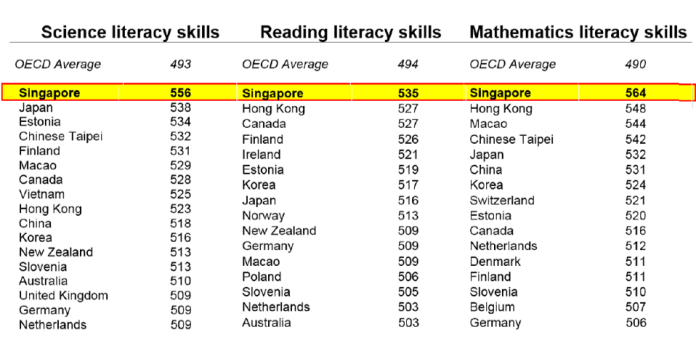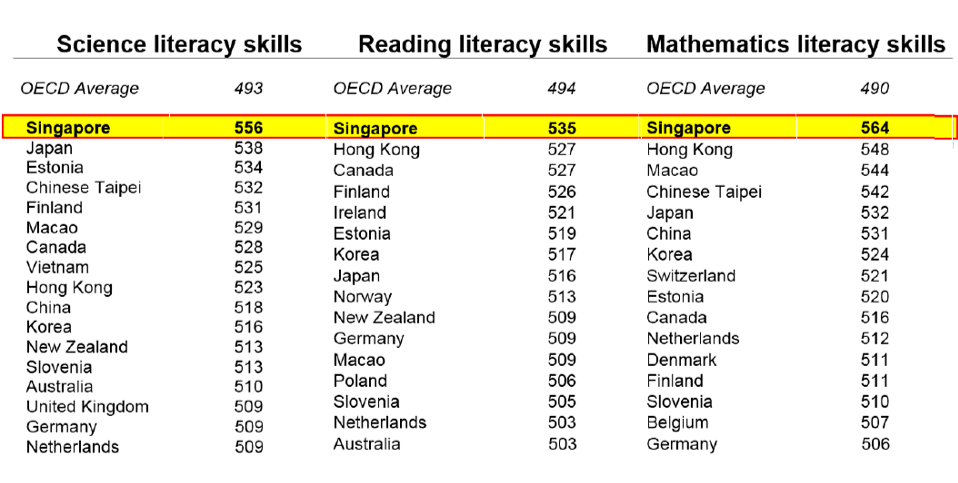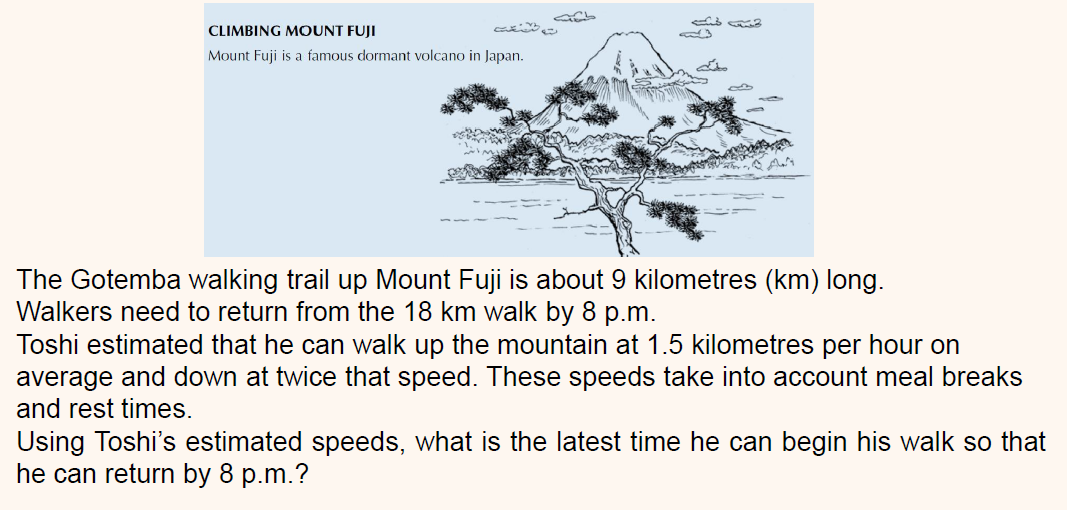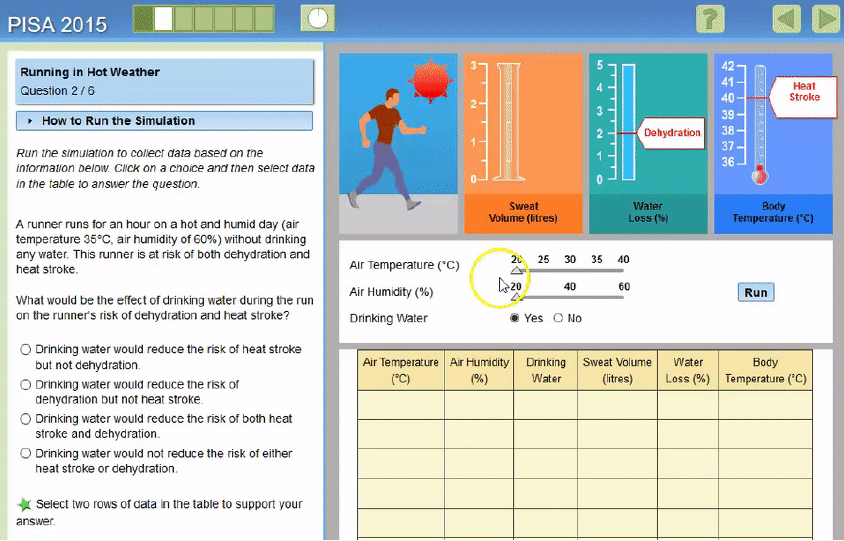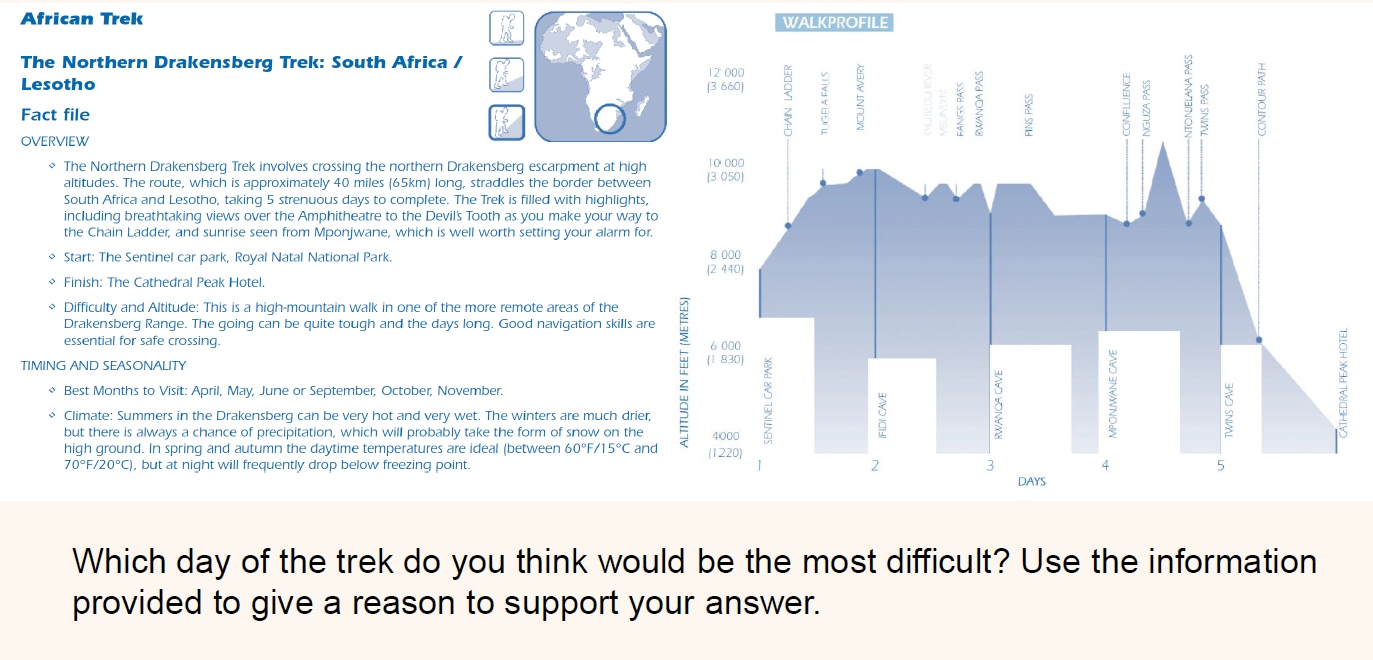SINGAPORE — Singapore students have proven that they are not just adept at rote learning, but that they are also good at solving novel problems in unfamiliar situations by coming out tops in another international benchmarking study that tests analytical reasoning and knowledge application
This is the first time Singapore has clinched the first spot in all categories in the Programme for International Student Assessment (Pisa) since it started participating in the study in 2009. This stella showing comes merely a week after Singapore also took pole position in all four charts in the Trends in International Mathematics and Science Study (Timss), a test that assessed 10- and 14-year-olds’ math and science abilities.
In the latest round of Pisa, 6,115 randomly selected 15-year-olds here outperformed their peers from 71 other countries in maths, science and reading, affirming Singapore’s international standing as a high-performing education system. Trailing behind Singapore is Japan in science, and Hong Kong in both reading and maths.
(Click to Enlarge)
Pisa is different from Timss in that students were also tested on their ability to evaluate and design scientific enquiry, support claims with evidence, and reason.
The study also revealed that Singapore’s proportion of low performers stands at about 10 per cent – among the lowest of all participating education systems – while Singapore’s proportion of top performers is the highest across the board.
For the 2015 cycle of the triennial study, Organisation for Economic Co-operation and Development (OECD) had consolidated the four participating provinces of China – Beijing, Shanghai, Jiangsu and Guangzhou – into one entity. This breaks Shanghai’s lead in the 2012 cycle, when Singapore came in second in math, and third in science and reading after Hong Kong. In 2009, Singapore’s first year of participation, it came in second in math, fourth in science, and fifth in reading.
Commending Singapore’s students on how they “excel particularly in their capacity to think like scientists in the way they creatively use and apply their knowledge”, OECD’s director for education and skills, Mr Andreas Schleicher, said: “The modern world no longer rewards people just for what they know – Google knows everything – but for what they can do with what they know. It is therefore encouraging that Singapore’s students are not just leading the world in their scientific knowledge.”
Singapore’s Education Ministry (MOE) attributed the good showing to the deliberate curricular shifts made over the years towards a greater emphasis on higher-order critical thinking skills, putting paid to the Ministry’s pedagogical shifts in moving learning beyond content to helping students solve real problems.
Example of a math question in Pisa:
Example of a science question in Pisa:
Example of a reading question in Pisa:
Of particular interest to MOE’s deputy director-general of education (schools) Low Khah Gek is how more than eight in 10 participating students felt that teachers gave extra help when they need it, and continued teaching until they understand during most or all science lessons.
“We think a lot of the good performance of our students is also because of the dedication and the kind of approaches our teachers are (taking),” she said.
